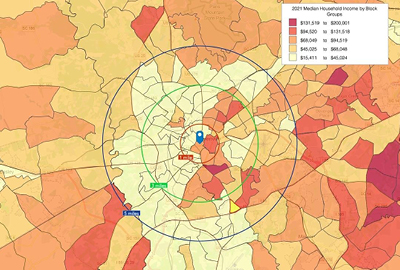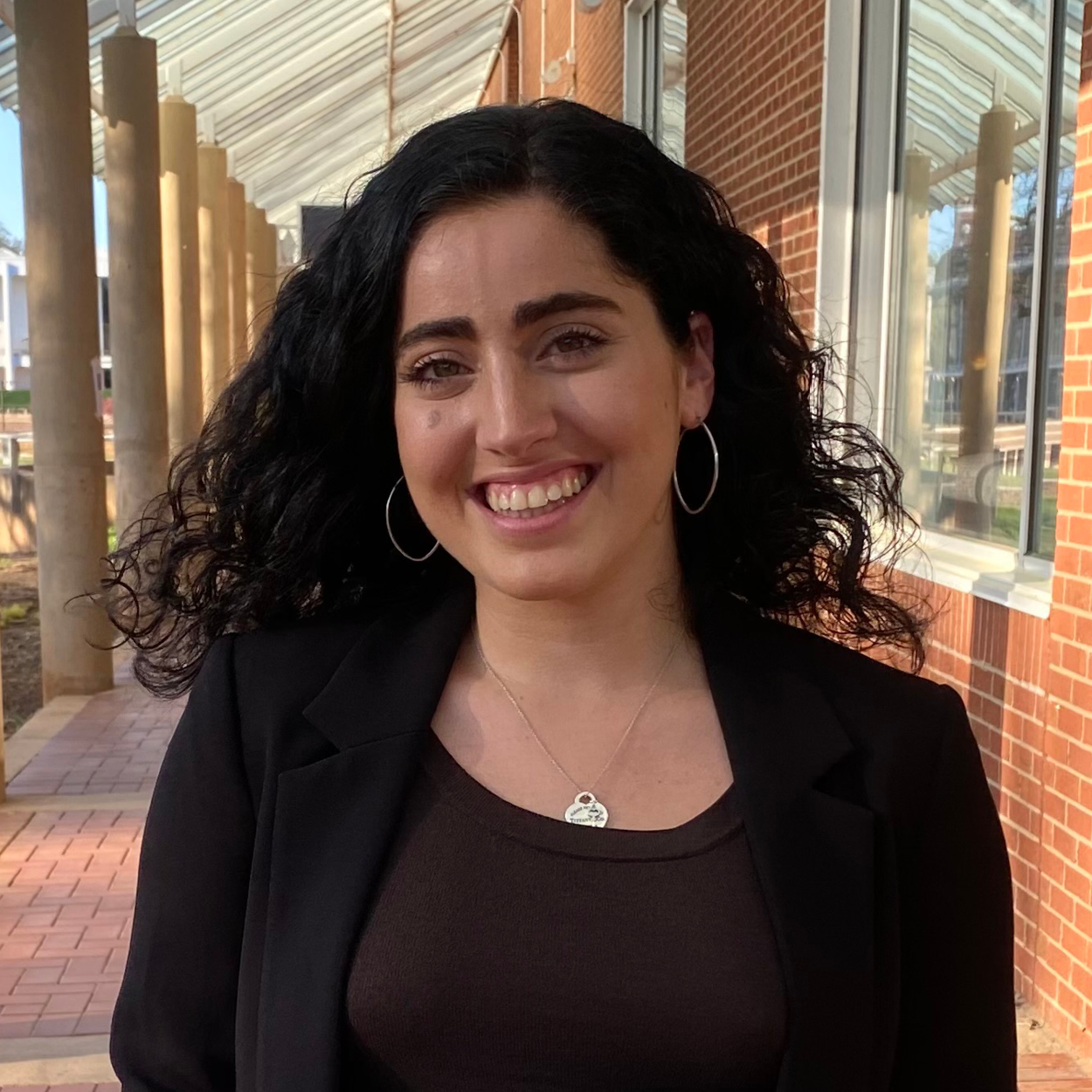Master of City and Regional Planning
The Master of City and Regional Planning program was established in 1968 and has been fully accredited since 1973 with more than 700 graduates. As the only graduate planning program in South Carolina, the program plays a pivotal role in the development of the planning profession in the state and region. Graduate planning students come from a variety of undergraduate majors and professional backgrounds. The MCRP program typically has annual classes of approximately 15-20 students providing the opportunity for extensive faculty involvement in teaching, research and public service.
Application Information Director's Message Give to the MCRP Program
-
Overview
The MCRP program taps the diverse resources of other planning-related departments in the University such as architecture, landscape architecture, economics, political science, civil engineering, industrial management, sociology, environmental and transportation engineering and construction science and management. Several studios and courses focus specifically on an interdisciplinary approach to planning and land development with students from several departments and colleges.
The program emphasizes sustainable land development applying appropriate technology and recognizing the balance of physical, economic, financial, social and policy dimensions of planning. While the curriculum covers theory and policy issues, the principal focus emphasizes the applied skills that students will need to enter the job market as professional planners and to evolve as leaders in the field. Classes use real-world situations for analysis and for the application of planning skills.
The primary mission of the Master of City and Regional Planning Program is to serve the local, state, regional, national and global environment by integrating theory and practice in dealing with challenges of community growth and change in an increasingly diverse society by engaging in research and service activities that address critical planning issues.
-
Curriculum
A total of 48 credit hours are required for the masters' degree in City and Regional Planning.
The two-year program contains a 27-credit core curriculum. The core curriculum includes planning and substantive theory, analytical methods, implementation techniques and applications.
The program also calls for 18 credits of elective courses in addition to 3-credits for a terminal project or thesis. Electives allow the student to develop further expertise.
Upon the completion of coursework, an oral examination is required to present and defend the results of their terminal project or thesis.
MCRP Curriculum Information
- Curriculum for MCRP courses for Year 1 and Year 2 students.
- Students register for MCRP courses via their iRoar account.
- Relevant Deadlines for registration and classes.
- See the Graduate Academic Catalog for a list of CRP courses.
- Tuition for residents and non-residents per credit hour; reference the Graduate Tuition Calculator then Tier 2 for MCRP.
Curriculum Overview
First Year Courses
FALL CRP 8040 & 8041 Intro to GIS for Planning 4 credits CRP 8050 Planning Theory and History 3 credits CRP 8410 Intro to Environment Planning 3 credits Elective 3 credits Fall Credits: 13 SPRING CRP 8010 Planning Process and Legal Foundations 3 credits CRP 8060 Urban and Regional Economics for Planners 3 credits CRP 8080 Land Use and Comprehensive Planning 3 credits Elective 3 credits Spring Credits: 12 Second Year Courses
FALL CRP 8070 Professional Studio 3 credits CRP 8580 Mixed Methods for Planning Practice 3 credits CRP 8590 Terminal Project / Thesis Proposal 3 credits CRP 8940 Professional Planning Seminar 2 credits Fall Credits: 11 SPRING CRP 8600 Terminal Project/Thesis Proposal 3 credits Elevtive 3 credits Elective 3 credits Elective 3 credits Spring Credits:12 Total Credits: 48 Elective Courses—All Electives Must Be Approved by an Advisory Committee
-
Bachelors to Graduate Degree
Clemson University seniors meeting the accepted academic standard for graduate work (3.0 cumulative grade point average) are eligible to request enrollment in graduate level courses. Enrollment of seniors in any graduate course is subject to approval by the department offering the course and the Graduate School.
Seniors with 3.0 or higher grade-point ratios are eligible to request enrollment in graduate level courses to meet requirements for the bachelor’s degree; however, courses used for this purpose cannot be counted later towards an advanced degree.
Request for Senior Enrollment in Graduate Courses requires a GS6 form.
Note: Students seeking to apply course credit toward a combined bachelor’s/master’s plan should consult both their academic advisor and the graduate coordinator of their intended program about the availability of this option, and should use the GS6-Bachelor-to-Graduate form, “Request for Combined Education Plan,” instead of this GS6 form.
You may contact CRP Program Director John Gaber if you would like to discuss.
-
Graduate Assistantships and PSAs
Graduate Assistantships (GA)
- Faculty Managers are assigned during the beginning of the Fall semester.
- Effective first day of Fall semester class
- Work an average of (10) hours per week = (150) hours per semester during Fall and Spring of Academic year.
- Enter your work hours each week via GA Time Capture (Instructions) (Student employees do NOT exceed maximum hours per week).
- Enrolled in a minimum of nine (9) credit hours each semester of approved course work.
- Failure to complete assignments or GPA academic deficiency, may result in withdrawal of GA during Academic year.
- Reference GA Termination for Cause policy or Termination for Academic Deficiency Policy.
- Evaluation of employment performance will be completed by the Program Director.
- Health Insurance supplemented by Clemson Graduate Student Government.
- Final paycheck on May 15.
- Tuition reduction does not apply during Summer session.
- Reference Graduate School Student Employment Policies and Procedures.
- Abide by all Clemson University policies and procedures as specified.
- Fulfill all assigned responsibilities.
Summer Internships
- Students will be paid directly from their employment agency, if you have a paid internship.
- Tuition for residents and non-residents per credit hour; reference Graduate Tuition for Summer credit hour then Tier 2 for MCRP.
Public Service Assistantships (PSA) for Year 2 Students
- Employment agencies will interview students prior to making decision.
- Conducted during the first week of class in August.
- MCRP recommends students based on their academic performance during Year 1 to employment agencies.
- (1) PSA is offered to Year 1 student with a Graduate Assistantship after interviews in August.
- Work 15 hrs per week for 15 weeks for a total of 225 hours per semester = 450 total hours per Academic Year.
- Enter your work hours each week via GA Time Capture (Instructions) (student employees do NOT exceed maximum hours per week).
- Students are paid by Clemson University and not paid by employer.
- Tuition reduction can not be determined until after employers make selections.
- Students will pay the first installment of their tuition in order to register for classes. If student is awarded a PSA, then a refund will be processed.
- Failure to meet employment responsibilities will result in student obligations for tuition and stipend.
- Evaluations (to be completed at end of internship):
- PSA Employer Evaluation of Student (employer has the option to send form to Program Director for confidentiality or return to student to turn in to the Admin Coordinator).
- Student Evaluation of PSA (complete and turn in to Admin Coordinator via email or Lee 3-113).
NOTE: Financial Aid is not Automatic.
- Faculty Managers are assigned during the beginning of the Fall semester.
-
MCRP Graduating Student Information
Graduation Candidates
Graduate School Academic Forms
Follow all Graduate School Deadlines- GS2 process includes 1) Terminal Project/Thesis Committee Selection and 2) Plan of Study for Enrolled Services. Whenever a change occurs, a new GS2 is required.
- GS7M Final Exam, Terminal Project or Thesis approval (completed by TP Chair and submitted by Dept to Enrolled Services)
- GS7990 Enrollment Request (completed by student and submitted by Dept to Enrolled Services)
- Graduation Student Forms
- Professional Development
Timelines for Graduation Candidates Fall Semester August Meet with Faculty Advisor and/or Terminal Project or Thesis Committee Chair to select topic and research methods.
November 1. Complete GS2 Plan of Study with TP/Thesis Committee selection.
2. Schedule your Terminal Project or Thesis Proposal presentation via online link after email notification.
Spring Semester January 1. Complete the GS2 Plan of Study with Courses (48 minimum credits) by graduation deadline date or late fees assessed. Committee Selection instructions and Plan of Study instructions.
2. Apply to Graduate via your iRoar account. Deadline dates posted from Graduate School.
3. Order Cap and Graduation gown from the University Bookstore. The Graduate School posts all deadlines.
March Schedule your Terminal Project or Thesis Defense presentation to Faculty Committee via online link after email notification.
April 1. Thesis project must complete the GS Defense form and GS Defense calendar 10 days prior to presentation date.
2. Terminal Project and Thesis presentations to CRP Faculty Committee.
3. GS7M Terminal Project or Thesis approval required to Graduate (completed by TP Chair and submitted by Dept to Enrolled Services).
May 1. Exit Interview and Exit Survey: Graduating students will complete an Exit Survey and schedule a meeting with the CRP Program Director (schedule appointment via online link after email notification).
2. Terminal Project and Thesis PDF final version required. Student is responsible for coordination of their manuscript binding for personal hardcover books.
3. Graduation Ceremony
-
Honors and Awards
Year 1 Student Awards
The MCRP Program has five awards for Year 1 students.
The Debbie Lieu Memorial Award
This award is given to a promising first year student in the City & Regional Planning program who best demonstrates professionalism and a positive attitude, works effectively behind the scenes, and significantly contributes to volunteer activities.
Call for applications is emailed in February. Year 1 students send applications directly to Administrative Coordinator for the MCRP program prior to last day of February. The MCRP Committee will review the applications and a student selected by the first week of March. The recipient will be announced in public ceremonies at both the College of Architecture, Arts and Humanities Awards Ceremony in April and at the SCAPA Fall Conference.
Marsha Ritzdorf Memorial Diversity Award
This award is given to a student from an underrepresented group in order to enhance diversity in the student body of the MCRP Program and among professional planners in South Carolina. The recipient is announced during the College of Architecture, Arts and Humanities Awards Ceremony in April.
Citation in City and Regional Planning: First Year Award
This citation is given annually to a first-year student as recognition of outstanding achievement in City and Regional Planning. It is recognition of creative ability, performance, and contribution to the enrichment of the College of Architecture, Arts and Humanities and Clemson University through academic accomplishment and service.
Edward L. Falk Citation for Merit
This award is given to a first-year City and Regional Planning student based on professional promise and service to the program.
McCallum Fellowship
This fellowship is given to an entering first-year City and Regional Planning student with outstanding academic abilities and an interest in the field of economic development. The recipient is announced during the College of Architecture, Arts and Construction Awards Ceremony in April.
Year 2 Student Awards
The MCRP Program has three awards for Year 2 students.
American Institute of Certified Planners Award
This award is presented to a second-year student in recognition of outstanding achievement in the study of City and Regional Planning. The recipient is announced on the APA AICP webpage.Faculty Award for a Second Year Student
This award is given to a second-year student in the City and Regional Planning program for scholarship and for having demonstrated promise of future achievement.
Citation in City and Regional Planning: Second Year Award
This citation is given annually to a second-year student as recognition of outstanding achievement in City and Regional Planning. It is recognition of creative ability, performance, and contribution to the enrichment of the College of Architecture, Arts and Construction and Clemson University through academic accomplishment and service.
-
Affiliated Organizations
American Planning Association (APA)
Master’s students in City and Regional Planning are members of the American Planning Association and the South Carolina Chapter of the American Planning Association (SCAPA). Being a part of these professional organizations provides our planning students with the opportunity to network with professionals in their area of interest. Students are not only encouraged to attend state and national conferences for networking, they are encouraged to attend to stay abreast of current planning issues.
The Clemson student APA Chapter (PSOC) provides planning students with the opportunity to learn from one another and network with alumni. There are many opportunities throughout the academic year to represent Clemson by attending state and national APA conferences. The student chapter has social events throughout the semester, and the chapter often socializes with master’s students in Landscape Architecture and Real Estate Development.
Planning Students Of Clemson (PSOC) officers currently are:
- President — Brianna Luna
- Vice President — Zack Kirtz
- Secretary — Isaac Quaye
- Treasurer — Zack Kirtz
- Events Coordinator — Landon Bridges
- Social Media Chair — Lauren Hunt
- Graduate Student Government Representative —
Association of Collegiate Schools of Planning (ACSP)
ASCP is an organization of university-based planning programs that “seeks to strengthen the role of planning education in colleges and universities through publications, conferences, and community engagement as well as through participation in the accreditation process."
- Dr. Barry Nocks, previous MCRP Chair, served on the Governing Board as a Planning Accreditation Board (PAB) Representative.
- Dr. Mickey Lauria, professor emeritus, is Past ACSP President.
- In 2019, Clemson City and Regional Planning program hosted the Association of Collegiate Schools of Planning 59th Annual National Conference in Greenville, SC.
-
CRP In the Community
Our CRP faculty participate in and serve on various professional planning organizations and boards. Below are ways in which our faculty are involved in the community (for a full list of professional service, please see each faculty member's Curriculum Vitae):
-
- Dr. Caitlin Dyckman's research on conservation easements: "Researchers receive grant to examine impacts of conservation easements."
- Dr. Dyckman is Chair of Tigers Advocate Advisory Board with Clemson University.
- Dr. Dyckman is member of Diversity Planning Committee with College of Architecture, Arts and Humanities.
- Dr. Barry Nocks served as Chair (2014-2016) of the Planning Accreditation Board, Fellow in the College of the American Institute of Certified Planning, Chair of the Design Review Board, and an Ex-officio Member of the Association of Collegiate Schools of Planning.
- Dr. Eric Morris served on a committee for a re-envisioning of the CATbus system.
- Dr. Robert Benedict served on the Design Review Board for the City of Greenville, SC.
- Dr. John Gaber was appointed by SC Governor Henry McMaster to serve as a member of the SC Advisory Committee on Educational Requirements for Local Government Planning or Zoning Officials and Employees for the term 2022-2024.
- Dr. Mickey Lauria, professor emeritus, served as Chair of the Planning Accreditation Board Advisory Committee in the Association of Collegiate Schools of Planning.
Clemson University and the MCRP Program played a big part in contributing to the Reedy River Project in Greenville, SC.
Each year, our students take a Professional Studio course, in which they participate in real-world planning projects in the local communities including Clemson, Anderson, and Spartanburg. Below are some of the recent projects the students experienced:
-
- Newry Historic Mill Village (2020)
- Nichols Community Planning, Next Steps (2019)
- Lamar Community Planning, Next Steps (2018)
- City of Clemson: Cadillac Heights Neighborhood (2018)
- Greater Sullivan Neighborhood Visioning Plan Inventory (2015)
- Pleasant Valley Visioning Plan (2015)
- Upstate Comprehensive Plan Analysis (2014)
In addition, some of our students conduct research locally for their final terminal project or thesis. Recent titles of those projects include, but are not limited to:
-
-
“Mitigating Sprawl and Creating a Compact, Pedestrian Friendly Environment Along Woodruff Road.”
-
“The Runway Trail—A Multi-Use Trail Encircling the Greenville Downtown Airport in Greenville, South Carolina.”
-
View complete City and Regional Planning Terminal Projects in the library's Tiger Prints System
-
“The first time I met the MCRP staff and professors, I knew I would continue my academic journey here at Clemson. The MCRP program is a small family, and as an international student myself, this is very important to me to know I have the support both from my program and my classmates. We are all passionate about planning and due to our diverse backgrounds, interests and experiences; we are able to apply it in unique and innovative ways. Our professors, who specialized in different aspects of planning, encourage a variety of mentorship and professional opportunities. I was very fortunate to serve as the president of the Planning Student Organization (PSO at Clemson), where we not only support professional and academic development but also create a space for connecting with classmates and securing a networking opportunity once you are out in the field.”
Guadalupe FranchiMCRP '23Master of City and Regional Planning
Contact
John Gaber
Director, City and Regional Planning
Email: jgaber@clemson.edu | Phone: 864-656-1208
About John Gaber






